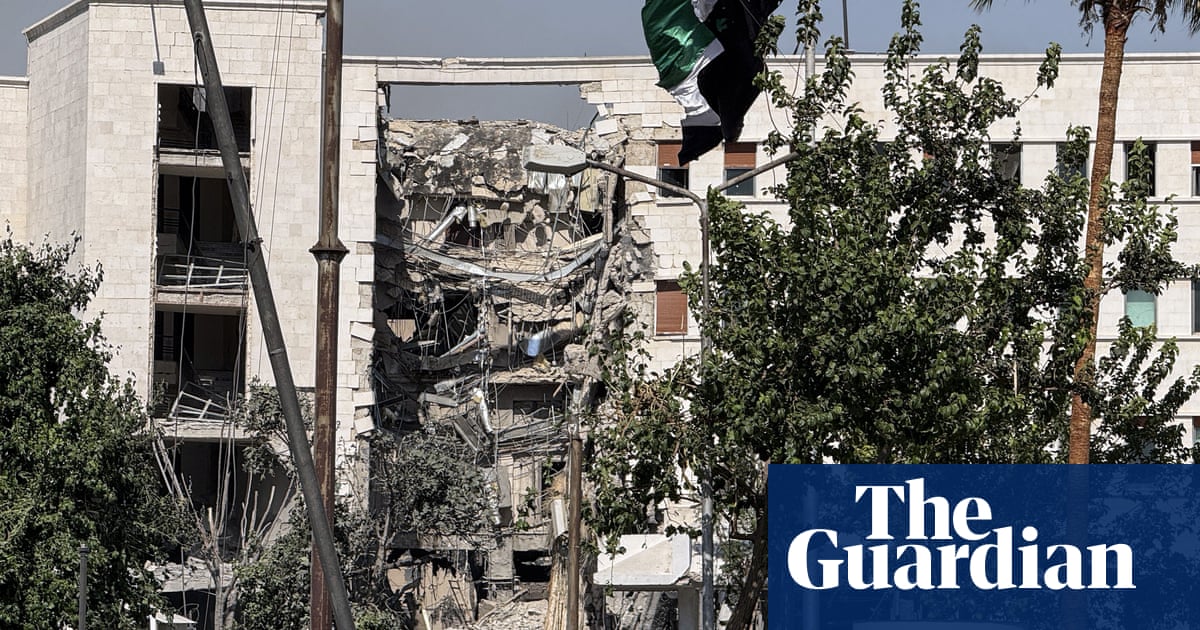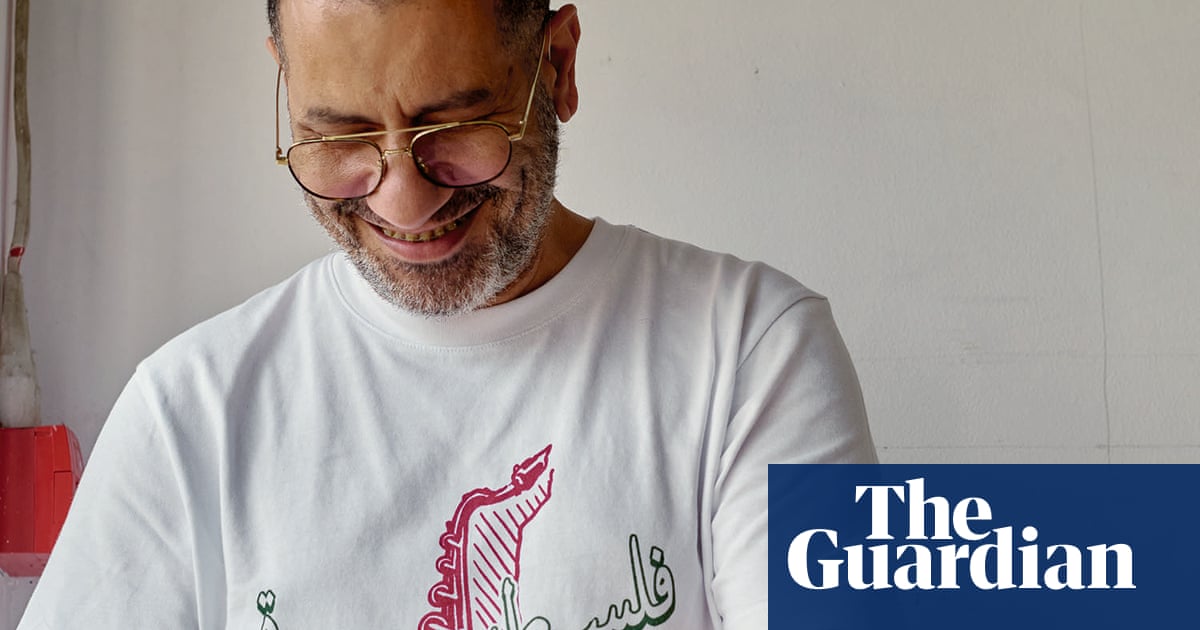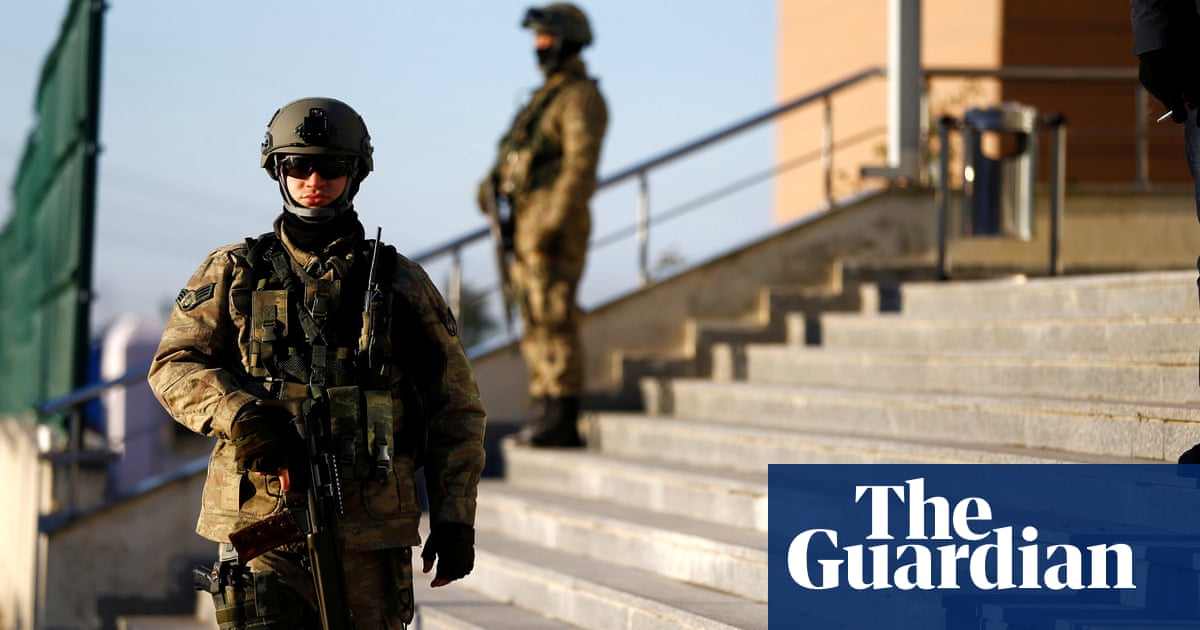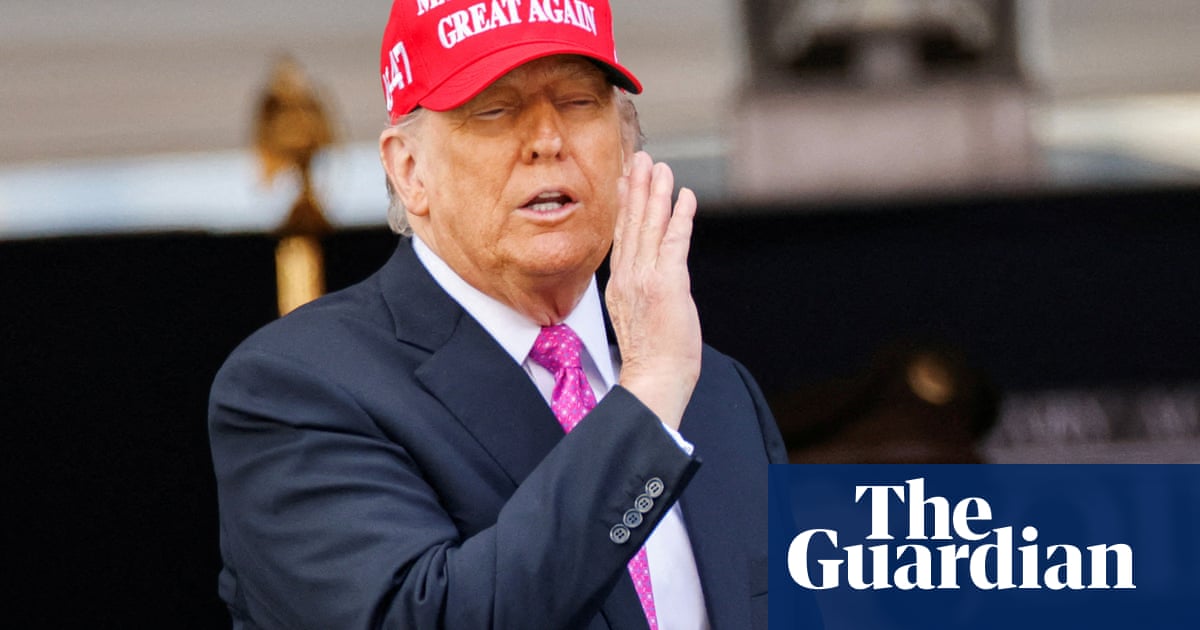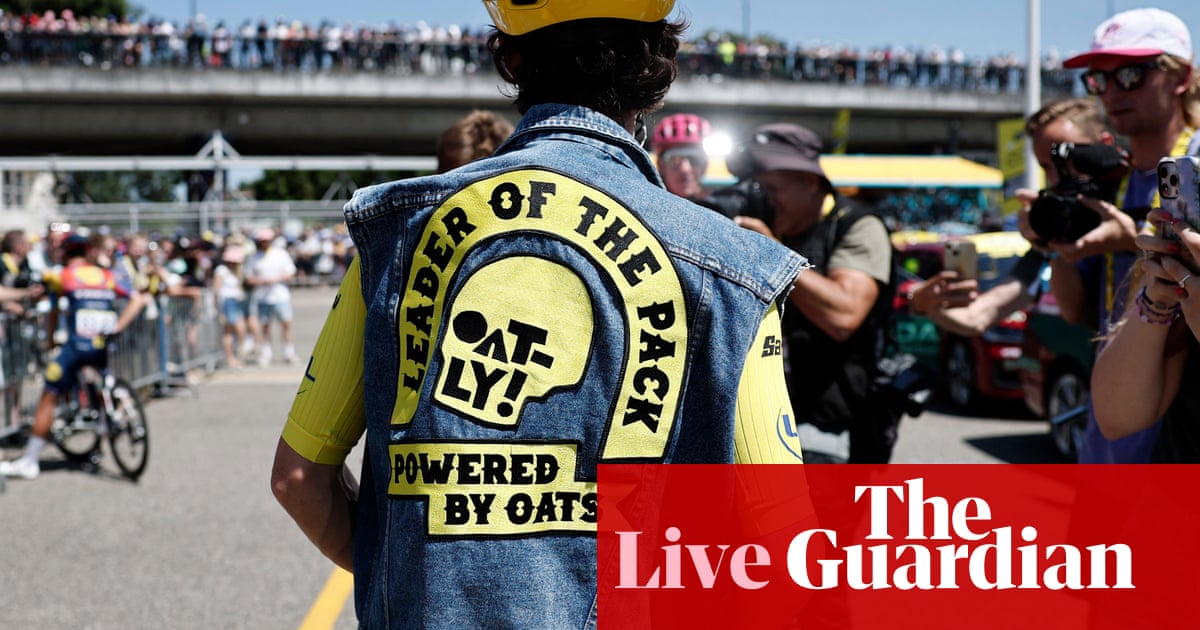Arms dealers affiliated with Houthi militants in Yemen are using X and Meta platforms to traffic weapons – some US-made – in apparent violation of the social media firms’ policies, a report has revealed.
The Houthis, an Iran-backed group of rebels who have controlled swathes of Yemen since 2014, are designated as a terrorist organisation by the US, Canada and other countries.
The report by the Washington DC-based Tech Transparency Project (TTP), which focuses on accountability for big tech, found Houthi-affiliated arms dealers have been openly operating commercial weapon stores for months, and in some cases years, on both platforms.
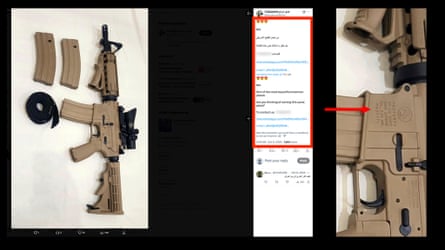
Meta, which owns WhatsApp, and X are scaling back their content moderation policies at a moment when experts say disinformation and illicit trafficking is on the rise.
The 130 Yemen-based X accounts and 67 WhatsApp business accounts identified by TTP offered high-powered rifles, grenade launchers and other military equipment for sale. Many of the arms dealers sold what appeared to be US-produced weapons, some emblazoned with “Property of US Govt”, as well as other western military weapons that were stamped with “Nato”.
The report does not specify the arms dealers’ customers but given the high price of the weapons, with some rifles being sold for as much as $10,000 (£7,500), it is likely buyers could be other militants.
X and Meta prohibit arms dealing on their platforms. Many of the arms dealers were subscribers to X Premium and users of WhatsApp Business – services that are supposed to be moderated.
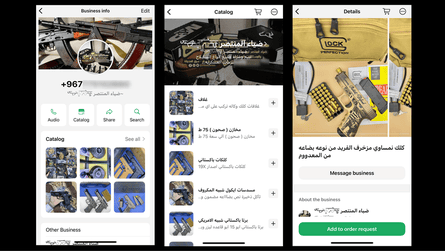
Katie Paul, the director of TTP, said: “X and WhatsApp both have policies against weapons sales but they are allowing arms traders linked to a US-designated terrorist group to traffic weapons on their platforms. In some cases these companies may be profiting off violations of their own policies that create risks for US national security.”
More than half of the X accounts listed their location as Sana’a, the Houthi-controlled capital of Yemen, and many regularly shared pro-Houthi content. Others sold weapons in containers marked with the Houthi logo, which states “God is great, death to America, death to Israel, curse be upon the Jews, victory to Islam”.
Several accounts identified by TTP were subscribed to X Premium, which allowed them to post extended videos. One account featured an “unboxing” video of an American M249 SAW, a light machine gun used by the US military. Other accounts used the tip feature, which allows X users to directly send donations to them.
X prohibits the use of its platforms by individuals who “promote [terrorist organisations’] illicit activities”, and says it does not allow terrorist groups to use its premium services.
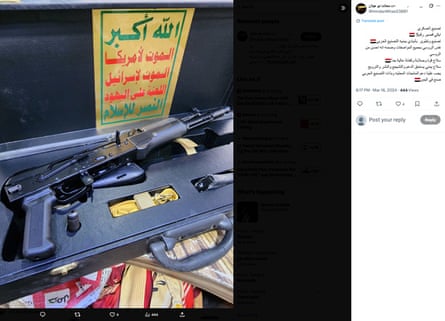
Adverts appeared in the comments of posts selling weapons, suggesting X could be making money off the posts. In one instance, X placed an ad for a company selling Tesla accessories under a post where an arms dealer offered an “all-American” Glock 17 handgun.
After Elon Musk bought X in 2022, he laid off about 80% of the company’s trust and safety team, which was dedicated to content moderation. A previous report by TTP found that more than 200 accounts affiliated with terrorist and other sanctioned groups had blue ticks and were subscribed to X Premium.
A few of the Houthi-linked arms dealers interacted with Musk himself on X. When Musk posted a video of himself firing a Barret .50-caliber sniper rifle in September 2023, three arms dealers replied to him advertising their own guns, which included two AR-15s.
X declined to comment on the findings of TTP’s investigation when approached by the Guardian.
Many of the arms dealers also used WhatsApp business accounts with the “catalogue” feature, which allows a slideshow of products to be displayed, to showcase a catalogue of weapons.
One such account offered dozens of guns, including a Glock pistol wrapped in a custom skin showing images of the Lincoln Memorial, the White House and an American colonial-era soldier with the words “Preserve, Protect, Defend” written on it.
WhatsApp says it reviews business account profiles and checks images before they are added to catalogues. It is unclear why the review process missed the images and accounts, many of which clearly identify themselves as arms dealers and link to Yemeni bricks-and-mortar gun shops in their biographies.
A spokesperson for WhatsApp said: “If we identify or are made aware of US-designated terrorist organisations attempting to use our service, we will take appropriate action – including banning accounts – to comply with our legal obligations.”
WhatsApp then banned two accounts sent by the Guardian. It clarified that it did not make profit from the type of accounts in question, but it did not otherwise reply to questions as to how the company’s review processes initially missed the arms dealers’ accounts.
Meta has laid off thousands of employees in the last two years, many dedicated to safety. In January, Meta vowed to roll back content moderation, in what seemed to be an acknowledgment of Donald Trump’s complaints of censorship on social media platforms.
TTP found that the vast majority of the Houthi-affiliated arms dealers’ accounts on X and WhatsApp were created after the layoffs at both companies.
Paul said: “Both Meta and X have the capital, the tools and the human resources to address this problem, but they’re not doing so.”
Besides content moderation issues, TTP’s findings also raised questions about global arms smuggling.
Taimur Khan, the head of Gulf regional operations at Conflict Armament Research, said tracing exactly how US-made weapons got to Houthi-held territory was difficult and there were several possible explanations.
Some of the weapons, particularly the American M4 rifles, were possibly from stocks supplied to Yemeni government forces before 2014 that were seized by the Houthis when they launched their insurgency.
Khan said other US weapons being sold by the accounts appeared “to have been diverted more recently” and were made for civilian customers rather than soldiers. Those weapons could have been trafficked from the US to Yemen through the Gulf and elsewhere in the region or by other means, he added.
Non-American weapons are also smuggled into Yemen along other regional trafficking routes. They are also supplied directly to the Houthis via their allies, such as Iran.
Earlier this year, the US imposed sanctions on a Houthi arms smuggling network that was accused of procuring “tens of millions of dollars’” worth of Russian weapons with the assistance of the Iranian Revolutionary Guards.
“The arms that are being advertised in Houthi-controlled areas by weapon dealers, who are at some level linked to the Houthis, reflect all the different vectors of supply in Yemen,” Khan said.

 10 hours ago
6
10 hours ago
6
